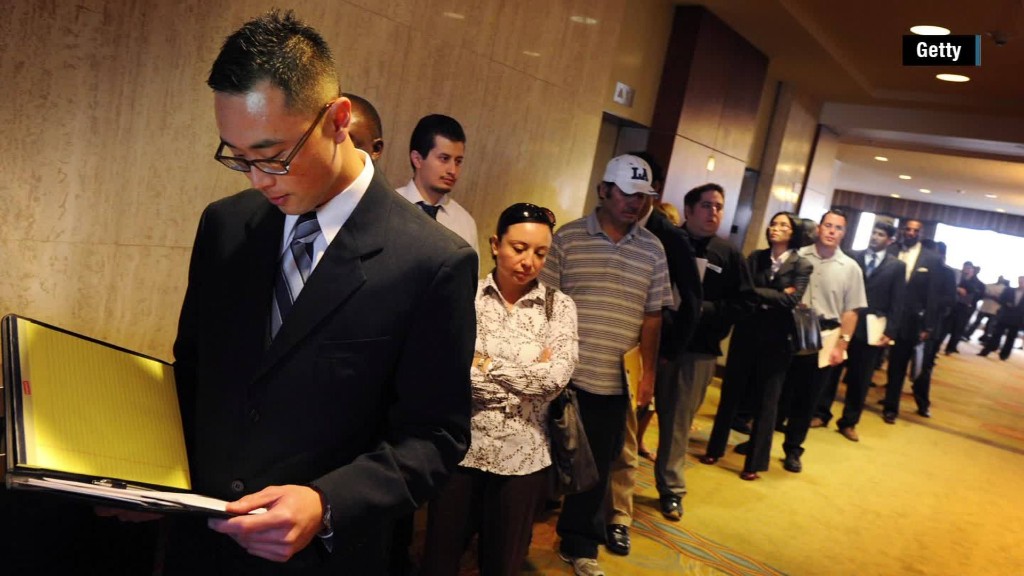
Middle America is angry -- they see a U.S. economy where a handful of rich get more, but the majority of Americans are working harder for less.
The latest statistics shows that inequality is getting worse: rich men not only make a lot more than everyone else, their wages are growing a lot faster too.
Men in the top 5% of income distribution saw their wages grow 15% between 2007 and 2015. But men in the bottom 70% have had no wage gains over the last 8 years, according to a new report by the Economic Policy Institute, a left-leaning think tank.
"It's no surprise that typical workers are frustrated with the economy since wage growth has been slow for so long," said Elise Gould, senior economist at EPI and author of the report.
Put another way, rich men at the top are making about $9 more each hour now than they were in 2007. But men in the bottom two-thirds are actually making less per hour.
With wages dipping for a majority of the country, it's no wonder that the American electorate is mad. Presidential candidates from both left and right Donald Trump and Bernie Sanders are tapping into just that rage during the 2016 election.
Related: Why Americans are so angry in 2016
There are similar disparities between rich women -- the top has pulled away while the bottom half languishes with wages that are barely budging, if at all.
The comparison between whites and blacks is also pretty stark. Not only are black incomes lower, their rate of increase is also smaller. Wages for whites at the top of the income spectrum have risen to $62 per hour from $54 in 2007. But blacks at the top of the income scale have seen wages rise by just a fraction -- to $42 per hour from $40 in 2007.
Related: Is trade really killing middle class jobs?
Very recently, in the last six months, Americans are starting to see some pick up in wage growth. But EPI's findings suggest that the overall gains might just be the result of wage growth at the top.
Folks earning minimum wage actually have seen some wage gains in the past year. Gould credits increases in state minimum wages. Twenty-three states and Washington D.C. increased their minimum wage in some form last year.
People at the bottom of the income scale who lived in states with minimum wage increases saw their wages grow faster last year than the same workers who lived in states without a minimum wage bump.
The wage gap is widest between people with a college degree and those without. A typical college grad made $30.81 last year. But the average worker with only a high school diploma earned $16.88.
What's worse: college grads' wages are up since 2007 and they're down for folks with a high school diploma or less.


